Congratulations to LSI PIs receiving 2024 MSHRBC Scholar Awards!
October 1, 2024
LSI PIs Dr. Jessica Rosin (Dept. of Oral Biological & Medical Sciences) and Dr. Kevin Wei (Dept. of Zoology) are recipients of the 2024 Michael Smith Health Research BC (MSHRBC) Scholar Awards, which recognize exceptional early career researchers as they develop leading-edge research programs, train the next generation of scientists, and advance cutting-edge health solutions.
Official announcement on MSHRBC website here.
Descriptions of their award-winning research programs
(from the MSHRBC site, please click title for link to site)

Microglia, the resident macrophages and phagocytic immune cells of the brain, play an important role in neurodevelopment—yet a fundamental question is whether these same roles have evolved in other regions of the fetus. My research is targeted at addressing this question by studying the contribution of macrophages to processes that shape the development of the skull and face (i.e., craniofacial morphogenesis), and whether distinct populations of these immune cells signal locally to contribute to normal development. During pregnancy, disrupting macrophage functions results in craniofacial and dental abnormalities. To explore the developmental contribution of these immune cells to the craniofacial region, we will use our established pharmacological mouse model alongside state-of-the-art expression profiling and imaging technologies. By studying how macrophages contribute to normal development of craniofacial tissues, this research will lead to advancements in our understanding of how maternal insults like maternal periodontal infection—a prevalent condition associated with adverse pregnancy outcomes—disrupts developmental programs. Overall, this research will broaden our knowledge of maternal-fetal interactions to benefit Canadians.

Transposable elements (TEs) are selfish genes that self-copy and move around the genome. Robust defense mechanisms silence TEs to prevent them from causing devastating mutations that break DNA and destroy genes. Failed TE suppression is associated with myriads of disease phenotypes including tumorigenesis and sterility. But the defense is not failsafe; TEs repeatedly acquire evasion tactics, enabling them to amplify at the expense of the genome. Using the powerful model organism, the Drosophila, this proposal aims to dissect hijack strategies TEs adopt during embryonic development. The first strategy is the timely activation of TEs before silencing is fully established. The second is for TEs to concentrate their activity near cells to increase the chance of passage to the next generation. To further reveal the full mutational impacts of TEs, we will artificially induce TE activity across multiple generations. Large numbers of new TE insertions will enable us to determine the deleterious impact on epigenetic state, gene regulation, and nuclear organization. Elucidating how TEs “cheat” and disrupt the genome will critically inform preventative and treatment plans for diseases caused by genome instability.
Latest News

Jayachandran Kizhakkedathu awarded New Frontiers in Research Fund – Exploration Grant
July 14, 2025

LSI researchers awarded funding through NSERC grants
July 11, 2025
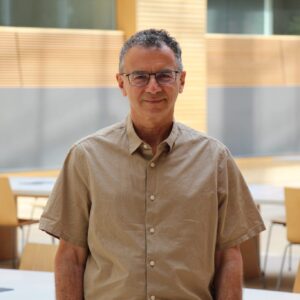
Dr. Ivan Robert Nabi awarded Distinguished Achievement award by the UBC Faculty of Medicine
June 24, 2025
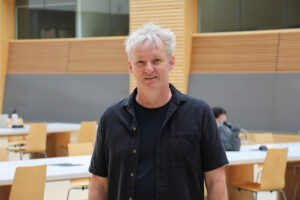
Dr. Douglas Allan Receives Co-Funded Grant from Alzheimer Society and Brain Canada
June 20, 2025

LSI Researchers Receive National Recognition for Stem Cell Innovation
June 20, 2025

Dr. Mark Cembrowski awarded over $4.8 million to advance neuroscience research
June 18, 2025
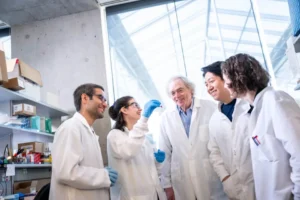
Dr. Pieter Cullis profiled by CIHR for pioneering work in drug delivery and mRNA vaccines
May 29, 2025

LSI PIs Sarah Hedtrich and Arun John Peter named Canada Research Chairs
March 28, 2025
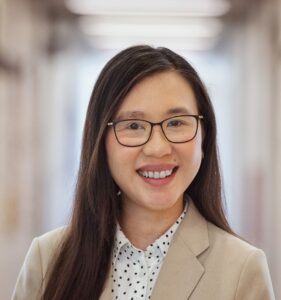
Dr. Emilia Lim Named Dr. Victor Ling Terry Fox New Investigator
February 27, 2025
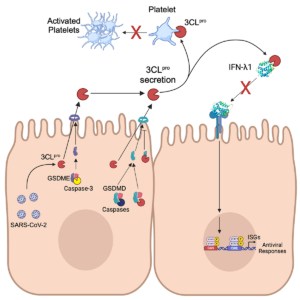
Unconventional secretion of the SARS-CoV-2 main protease opens the door for new extracellular biology in viral infection
February 11, 2025

LSI researchers awarded funding in Fall 2024 CIHR Project Grant competition
January 30, 2025

UBC evolutionary ecologist and LSI PI, Dr. Kayla King, awarded Arthur B. McDonald fellowship
November 21, 2024
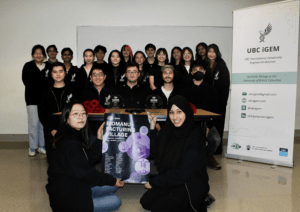
UBC iGEM Team Wins Top Awards for Novel DNA-Based Data Storage Platform
November 13, 2024
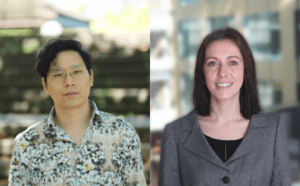
Congratulations to LSI PIs receiving 2024 MSHRBC Scholar Awards!
October 1, 2024

LSI researchers awarded funding through Spring 2024 CIHR Project Grant competition
July 24, 2024